A statement by Chad Head of State, Idriss Deby, supporting the current term of President Pierre Nkurunziza creates controversy. Between “electoral appetites” of African leaders and the AU malfunctioning.
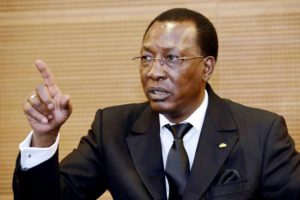
Idriss Deby: “In reality he served two terms, a constitutional term and a term outside the constitution.”
“The constitution says the president must be elected for two terms by universal suffrage. The first term of President Pierre Nkurunziza was not by universal suffrage, he was simply designated. The second term is constitutional and universal, so it’s a popular vote. It is all about the exploitation of that part of the constitution. For some, they say he has done two terms. Yes, in fact he served two terms, a constitutional term and a term outside the constitution”. This statement of the Chadian and AU President, Idriss Itno Deby, continues to raise reactions. For him, the Burundian crisis came from outside: “The United Nations, the United States, the countries intervened early to say yes, he has served two constitutional terms. The tension came from there.
Tensions, crises in Africa often come from outside Africa rather than inside. If Burundians had simply been let themselves solve their problems on the basis of their constitution, the situation wouldn’t have gone this far. “The Chadian president on an official visit to Germany last week spoke about Burundi on the airwaves of Radio Deutsche Welle.
Contradictions within the AU
The position of the Head of State of Chad contrasts with that of the AU Commission and the Council of Peace and Security of the AU that insist on dialogue between the government and the opposition to resolve the Burundian crisis which was born from the desire of President Pierre Nkurunziza to run for another term, claims the opposition. In 2015, a report of legal experts commissioned by AU had concluded that the third term of Pierre Nkurunziza was unconstitutional.
In its 631st meeting, the Peace and Security Council (PSC) of the African Union, held on 6 October 2016, emphasized on that dialogue.
“The PSC reiterates the urgent need for a quick resumption of the inter-Burundian dialogue under the auspices of the Community of East African States as the only practical way forward to resolve the crisis in the country. In this regard, the Council reiterates the need for a consensual approach between all the Burundian parties to address and resolve issues related to the situation in the country, and in so doing, to uphold the Constitution and the Arusha Peace Agreement and Reconciliation of August 2000.
“A dialogue that even President Deby has supported early during his early presidency as the head of the AU, “We gave a chance to Burundi and President Pierre Nkurunziza to solve this crisis. We would like this to be resolved through dialogue with an initiative of the Burundian president. We are also monitoring the situation closely. We cannot accept that the situation escalates. At this point, the African Union would intervene militarily, “he said in an interview with Jeune Afrique in January 2016.
A disappointed opposition…
This statement of the Chadian Head of State and current AU chairman was differently taken, as it was expected. Government supporters saluted the statement. For Willy Nyamitwe, Special Advisor to the president in charge of communication, what was said by President Idris Deby is true. “Some states have been destroyed by the will of some Western countries that wished to see them destabilized.” The presidential party, CNDD-FDD, shouts of victory:” The truth has finally triumphed, “Said Joseph Ntakarutimana, deputy secretary general of the party.
The opposition was quick to express disappointment. In a statement released on 15 October, Cnared, the platform of the opposition in exile, took issue with Deby. It condemned his position “that is likely to cause confusion within the opinion when the country suffers more dramatic consequences of this illegal and illegitimate term.
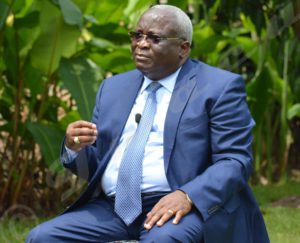
Domitien Ndayizeye: “Burundians should not be taken as children.”
«Cnared recalls that Idris Deby had once recognized the illegality of the third term of President Pierre Nkurunziza. Domitien Ndayizeye, former president of Burundi, refutes the charge against “outside” by Idriss Deby. “When the CNDD-FDD party decided to put forward Pierre Nkurunziza for a third term, that’s when the protests started in Bujumbura and throughout the country. Therefore, Burundians should not be taken as children as if they should learn from the United States, France or the European Union.”
Analysis
The “union” of Presidents
The position of Idriss Deby is that of an African Head of State who holds on to terms more than that of the Chairman of the African Union. With his umpteenth term in office now as a head of state, it is normal that he supports an African brother who has the same ambitions for the good of his country. “There is honor among thieves, » says the proverb. Yet, the fact is that most African presidents who make up the great family of the AU have the same claims and, in this case, Idriss Deby said out loud what his colleagues are thinking. Can’t the AU be referred to as “A club of heads of state for life?”
This statement by Deby was also an opportunity for him to implicitly get even with “the international community”. The successor to Hussein Habré is also not on good terms with this community on several issues of governance.
A grievance that he shares with other AU heavyweights towards the community for which democracy means change-over of power.
A conception that is quite distant from that of members of this club who, for reasons of their own, think they are best placed to preside over the destiny of their country.
Idriss Deby has taken a position contrary to that of the AU Commission and Peace and Security Council-PSC, which demonstrates once again the malfunctioning of that organization. In principle, it is the Commission that proposes to Heads of State the recommendations to be made. Nonetheless, the latter come forth to often contradict the individual position of each head of state in office who seeks to rule for the umpteenth time. They took the model of the European Union commission which fulfills its mission without the Heads of State involved in a democratic spirit, which is often lacking in Africa.
The isolation of the Burundian regime is more relative than people think.
You said “international community”?
It’s been eighteen months that the Burundian president defies a little more each day this concept (international community) and eighteen months that he resists all pressures for the reason that universalism advocated by this community of values (Western) … has nothing of universal.
While Europeans and Americans multiply reprimands, sanctions and boycotts, Chinese, South African and Russian embassies in Bujumbura continue their business as usual. Their owners are busy, attending cocktail parties and inaugurations, issue visas and scholarships, facilitate the signing of commercial agreements and do not experience any discomfort to appear alongside Pierre Nkurunziza.
This solidarity with regimes lampooned by the media, NGOs and the most Western politicians partly explains the tenacity to power of Mugabe, Nkurunziza, Kabila and several others, whose isolation is more relative than one would think.
It allows their supporters to repeat an elementary speech: If Westerners want them to leave power; it is because they do not or no longer have control over them and that the shares of the cake escape them to the benefit of their competitors.
François Soudan, Jeune Afrique, October 17, 2016
A godsend for Pierre Nkurunziza
“That may be a godsend. There are some African heads of state and especially among the least democratic leaders and Mr. Deby is certainly part of this group – who feel that we must get rid of any international observation and especially ICC. Deby is obviously not well placed to decide on the question of limiting the number of terms since Chad’s constitution does not provide for limiting the number of terms at all. ”
Filip Reyntjens, academic and expert on Great Lakes / RFI October 17, 2016
Unlike other parts of the continent that experienced even sporadic alternations, Central Africa has the highest rate of longevity of heads of state to power: 37 years for Teodoro Obiang Nguema of Equatorial Guinea, 37 years for Angolan Eduardo Dos Santos, 34 years for the Cameroonian Paul Biya, 26 years for the Chadian Idriss Déby. The three presidents of Angola, Equatorial Guinea and Cameroon make a total of more than a century in power. (Le Monde 31/03/2016)
“Ironically, the Chadian president has announced plans to limit the number of presidential terms during his inauguration speech. Let us recall that Deby, himself, had blown the constitutional lock of term limits in 2005. He had once been elected president in 1996 before being re-elected in 2001, 2006 and 2011. “Jeune Afrique in February 2016.

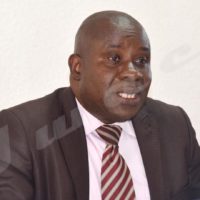
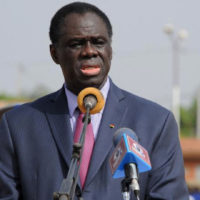
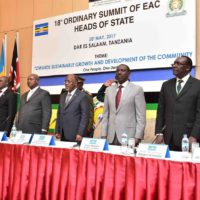
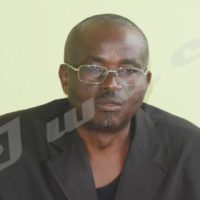
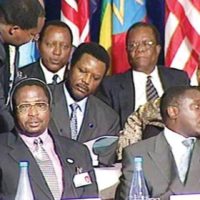













 IWACU Open Data
IWACU Open Data

